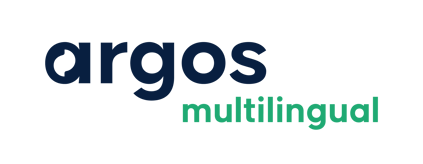Inclusive content shouldn't be available only in English. Everyone deserves to feel seen, heard and respected in their native language and here's how you can do your part when adding to the conversation in Slavic Languages.
Whether you're creating content in Ukrainian, Polish, Czech, or Bosnian, Croatian, and Serbian, you can define your diversity and inclusion (D&I) content strategy for your international and multicultural audiences.
Watch our OnDemand Inclusion Webinar where expert speakers will lead discussions on Slavic languages to help you understand the fundamentals of this language family and how to create inclusive content in all its languages.
Speakers

Nick Nasev
Translator and Consultant - IGNN KOMETA
Nick Nasev is an Australian-born, London-based accredited translator of Southern Slavic languages into English, specialising in medicine, clinical research, pharmaceuticals, genealogy and history. He is also an editor of and contributor to many award-winning books and journals about southeast Europe, as well as a writer about all things Balkan and Australian. A keen traveler and huge fan of Eastern European pop culture, if you're nice to him, he may even read your Turkish coffee cup.
.jpg?width=200&height=200&name=SarahPresch_NewPhoto%20(1).jpg)
Sarah Presch
Freelance Translator, Transcreator and Copywriter
Sarah Presch is Argos Multilingual’s Digital Marketing Director. She started off life as a Czech and Slovak into English translator & copywriter, before making a move into the world of international SEO and digital marketing a decade ago. Inspired by her background in psychology, inclusivity is something she is very passionate about, from both a DEI and language perspective. You can often find her speaking at events about the cultural differences between English-speaking and Slavic countries, and how this in turn impacts everything from buyer behaviour to inclusivity efforts.
.png?width=200&height=200&name=Yulia_Skadchenko%20(1).png)
Yulia Skadchenko
Czech, English, and Russian Translator & Interpreter
Yulia Skadchenko is a freelance conference interpreter and creative translator with a passion for plain and inclusive language, sports, and cats. She has been working with human rights organizations and corporate clients alike for almost a decade. She believes that even stubborn Slavic languages like Czech and Russian – her working languages – can be inclusive and neutral. All you need is a bit of creativity and an open mind.


